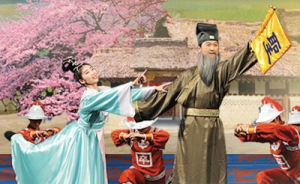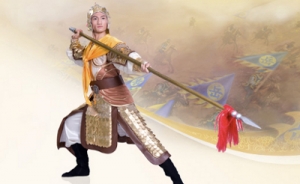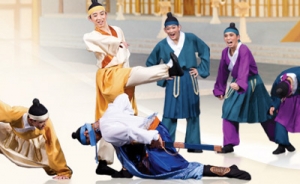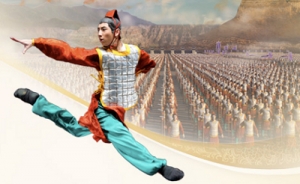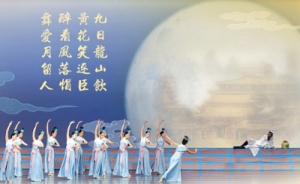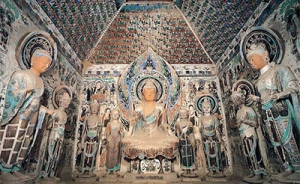The Yang Clan and Mu Guiying - China's Amazons
Over a thousand years ago, the Northern Song Dynasty was constantly invaded and, ruled by a corrupt and lackadaisical court, teetered on the edge of destruction. But one loyal family had both the courage and the prowess to lead the fight—and keep the dynasty alive.
Starting in the 10th century, generation after generation of the Yang family risked everything to defend the Middle Kingdom. The family has since been synonymous with unwavering loyalty, its legacy recorded in a collection of stories known as Generals of the Yang Clan (“Yang Jia Jiang”).
A Loyal Legacy
The family’s first famous warrior was Yang Ye, a former Northern Han Dynasty general. After the Northern Han surrendered to the Song, he tirelessly went to war to save the young dynasty’s borders from the Khitan, who were incessantly invading from the north.
Dreaded by his enemies, Yang Ye was nicknamed “The Peerless Yang” (Yang wudi) for his fearlessness in battle. His greatest moment came at the strategic Great Wall portal known as Yanmen Pass, when he won a critical battle against numerically superior Khitan forces. He quickly became one of the emperor’s favorite generals.
This prompted jealousy from the other generals, and Yang Ye’s compatriot Pan Mei eventually abandoned him on the battlefield. Overpowered this time, Yang Ye was captured and starved to death.
Yang Ye had eight sons, and perhaps the most outstanding was Yang Yanzhao. As valiant as his father, he was also very adept at the art of war. Over a 20-year-period, he managed to secure the Song Dynasty’s borders. Even the Khitans, who saw Yang Yanzhao as their biggest enemy, respectfully compared him to Mizar, the sixth star of the Big Dipper, and reverently called him “Yang the Sixth.” Alongside the rest of his family, Yang Yanzhao fought for his country until his death at 57.
China's Amazons
But war took a heavy toll on the family, and as the invading forces drew near, the last of the Yang generals was killed. Who could defend the Middle Kingdom? This was the time for the Yang’s female warriors to shine.
Intrepid as the men, the Yang women are celebrated as Chinese Amazons. Yang Ye’s wife, She Taijun, went to many a battle with him and only began staying at home after they had children. With astute matchmaking, their sons married talented female warriors. But perhaps the most famous of the Yang’s female warriors was She Taijun’s granddaughter-in-law, Mu Guiying.
It was grandson Yang Wenguang, son of Yang the Sixth, who married her (though in some novels Mu’s husband is named Yang Zongbao, still referring to the same man). A talented tactician, Mu was able to deliver the Khitan a heavy blow by breaking their previously indomitable “Heavenly Gate Battle Formation.”
Mu and her husband, however, enjoyed few peaceful days together. Soon after defeating the Khitan, a new force arose to threaten the Song Dynasty—the Western Xia. It was then that Yang Wenguang, the family’s last male general, was killed. With invaders at the doorstep and beacon towers burning, China was left without a single hero. And so heroines appeared.
With the encouragement of matriarch She Taijun, Mu Guiying—along with her faithful maid, Yang Paifeng, and all the Yang widows—took charge of the emperor’s military, defeated the Western Xia, and saved the dynasty.
It is this story that Shen Yun depicts in Lady Mu Guiying Commands the Troops (2012), choreographed by Michelle Ren and with music composed by Junyi Tan.
March 3, 2012


